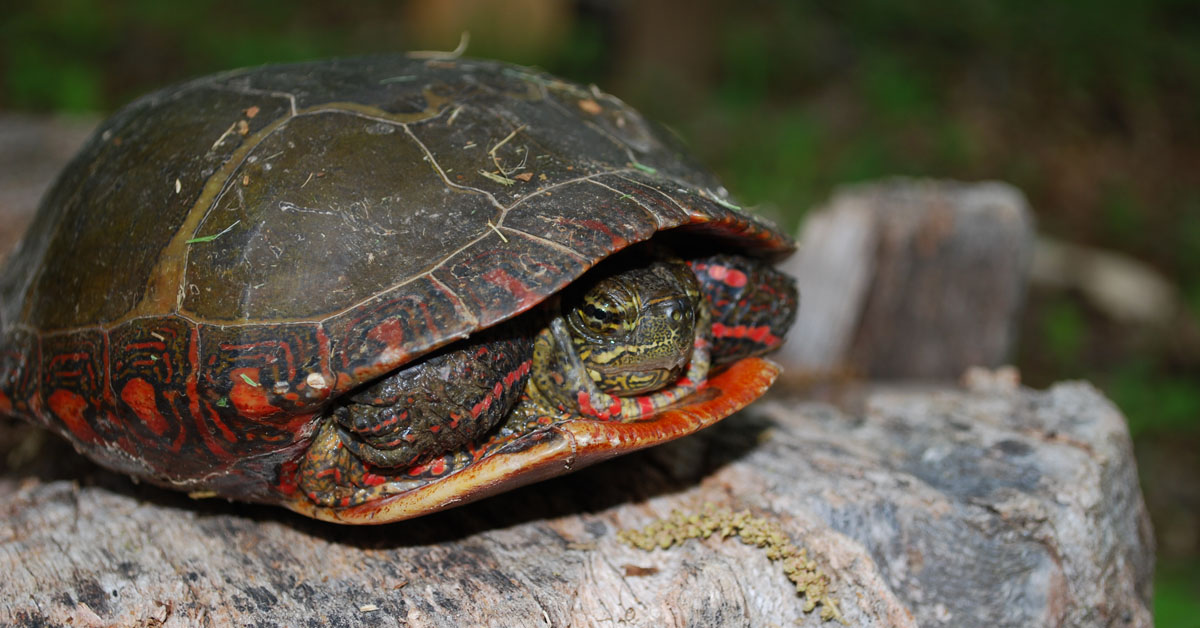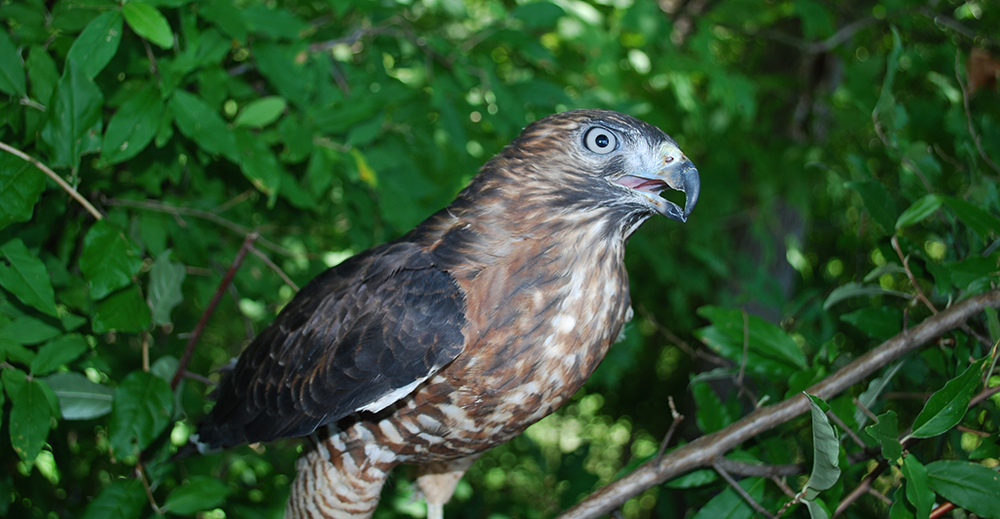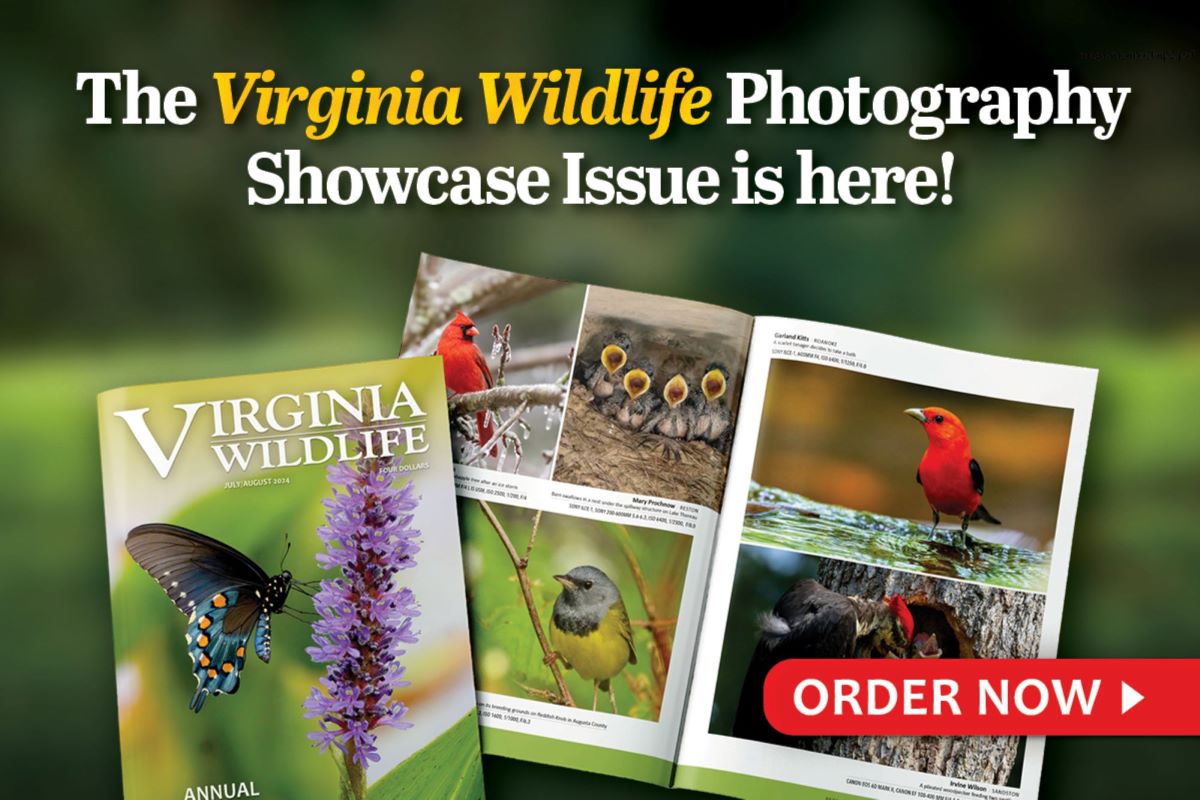
A painted turtle, one of the many non-game species your donation to DWR's Non-Game Program would benefit.
By Bruce Ingram
Photos by Bruce Ingram
Many Virginians may be unaware of how beneficial the Virginia Department of Wildlife Resources’ (DWR) non-game program is to all wildlife species. Jeff Cooper, a non-game bird project coordinator for DWR, gives an example of the program’s plusses.
“Every time we do a selective thinning or create early succession and edge habitat to benefit songbirds such as cerulean, prairie, and golden-wing warblers, that same work provides food and habitat for deer, turkeys, rabbits, and a host of other game and nongame species.”
Cooper adds that he specializes in working on projects to help eagles, hawks, and other raptors as well as some marsh birds. Fellow biologist Sergio Harding works with other non-game avian species, especially peregrine falcons, songbirds and marsh birds. Non-game biologist Ruth Boettcher specializes in programs assisting shore birds as well as sea turtles and sea mammals. In short, between the three biologists, they cover all the non-game bird species groups in the Old Dominion.

A broad-winged hawk, one of many bird species your Non-Game Program donation would help support.
Cooper relates that one of the most fascinating projects he is working on involves golden eagles. DWR is part of the Eastern Golden Eagle Working Group (EGEWG), which includes wildlife agencies in Canada and the Eastern United States as well as private industries and other groups.
“DWR has been able to put out bait sites (road kill deer carcasses) at high elevations in order to trap and put transmitters on golden eagles,” Cooper says. “So far, we’ve been able to put transmitters on some 40 birds. Before we did this, I thought goldens were a vagrant, rare bird in Virginia. Now we know that in the winter, they can be found from Shenandoah County to the Clinch Mountain Wildlife Management Area (WMA) near Saltville.”
The biologist adds that in this region, the eagles’ winter core appears to be the Virginia/West Virginia border and they are most likely to be observed from late November to possibly early May.
Another aspect of the non-game program, as it concerns eagles, is that the DWR has been able to work with Dr. Trish Miller, chair of Conservation Science Global. One of the goals has been to learn (through cellular transmitters) how eagles use air space two and three dimensionally. Sharing this information with the wind turbine industry will hopefully result in fewer eagles colliding with turbines.
Similarly, learning more about bald eagle’s flight patterns in the Eastern part of the state—and sharing that information with the Langley Air Force Base—has resulted in these raptors being trapped and released elsewhere, out of harm’s way. The information gained will also hopefully result in fewer midair collisions between eagles and planes—good for humans and wildlife.
Harding notes that one of the non-game program’s major efforts is to partner with William and Mary’s Center for Conservation Biology (CCB). The objective is to monitor peregrine falcon populations in Virginia’s coastal plains and piedmont.
“We’re finding peregrines on high rise buildings in Richmond and Virginia Beach, as well as hack towers, smokestacks, and bridges,” Harding says. “DWR is also coordinating survey efforts in the mountain region, which historically is where peregrines were found before they were extirpated. The good news is that this falcon is slowly but surely returning to the mountains. There are probably birds breeding that we are not even aware of.”
Wildlife enthusiasts who are due a state tax refund can simply mark the appropriate space on the Virginia State Income Tax Form to donate to the Non-game Program. You can also make a tax-deductible donation to the Non-game Program any time by sending a check to: DWR Non-game Program, P.O. Box 90778, Henrico, VA 23228-0778, or make a donation online in the licensing section of purchases.


